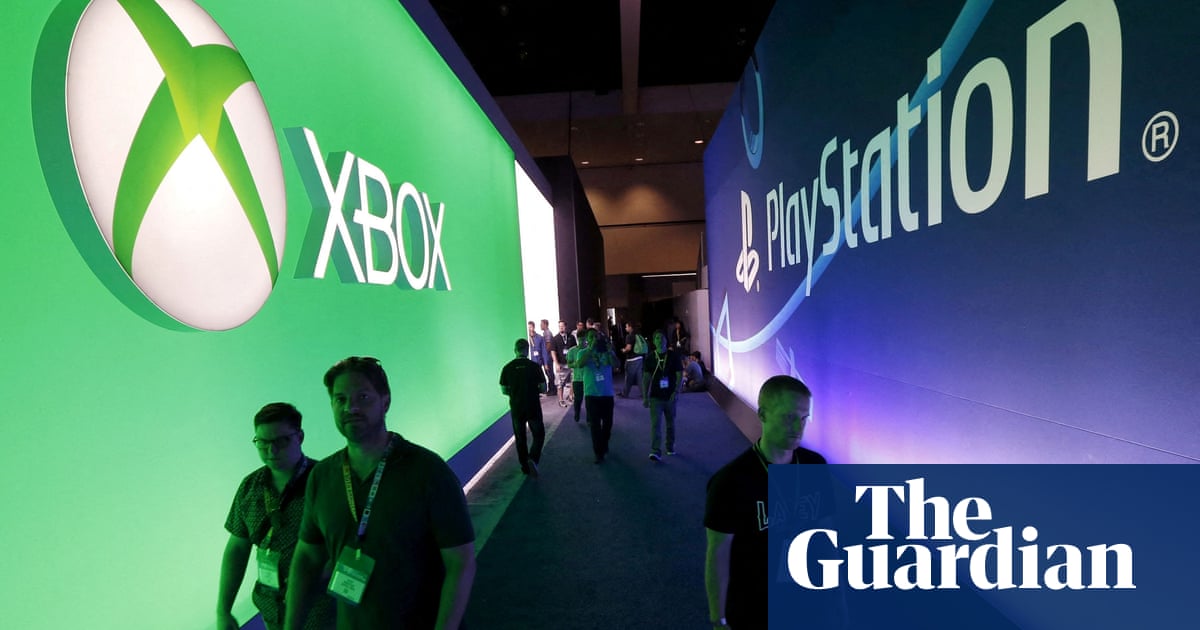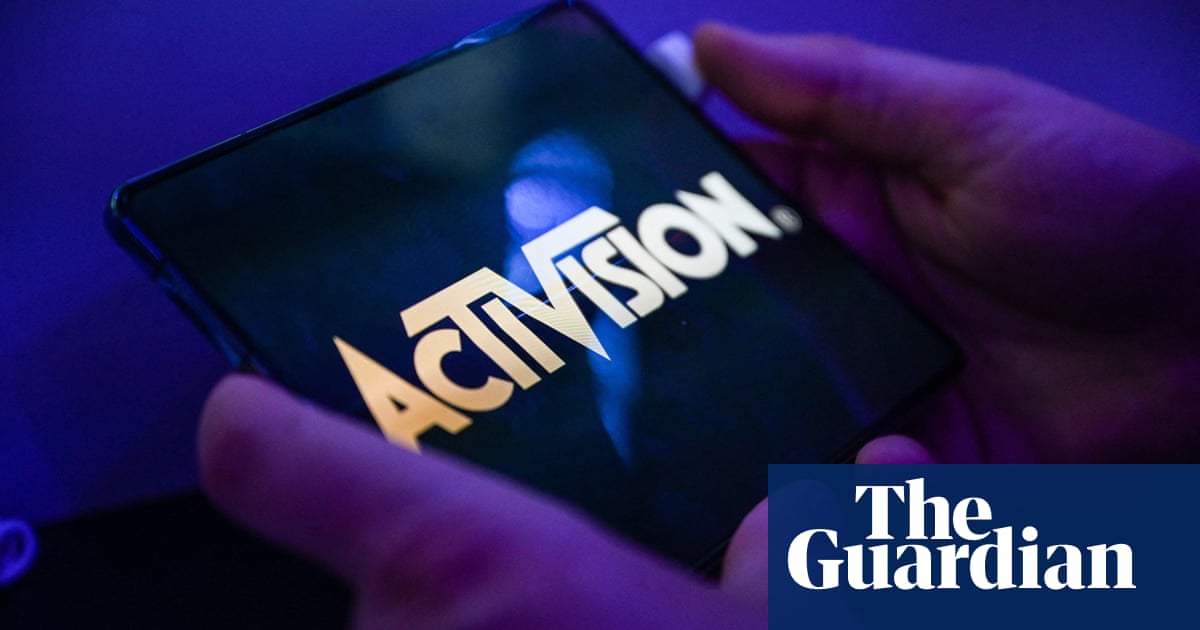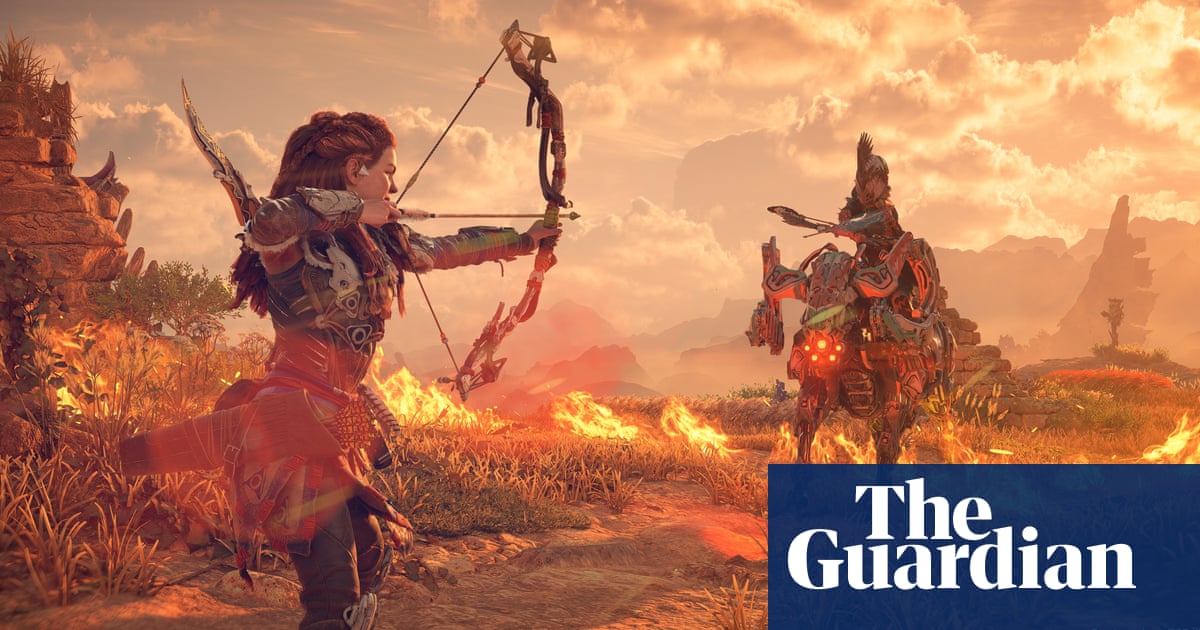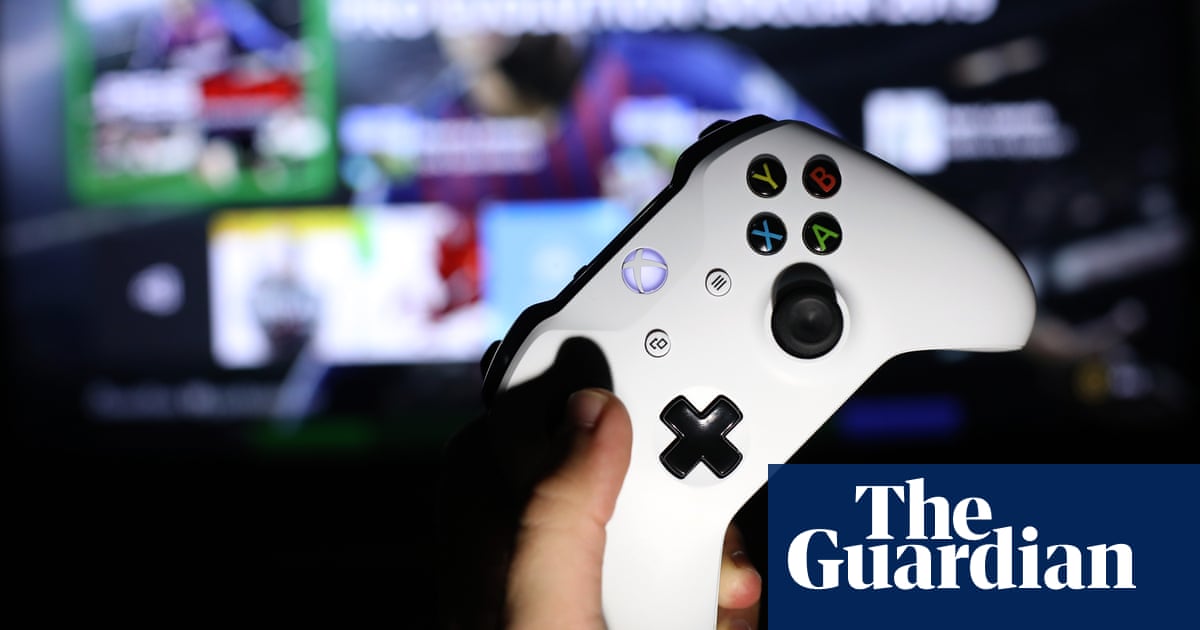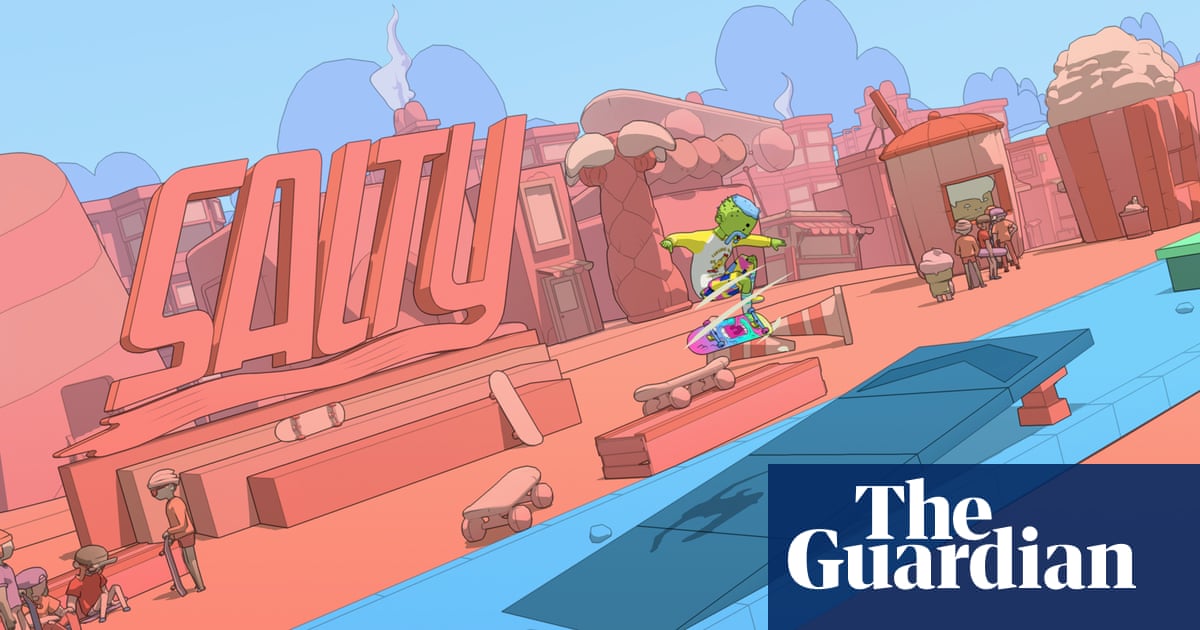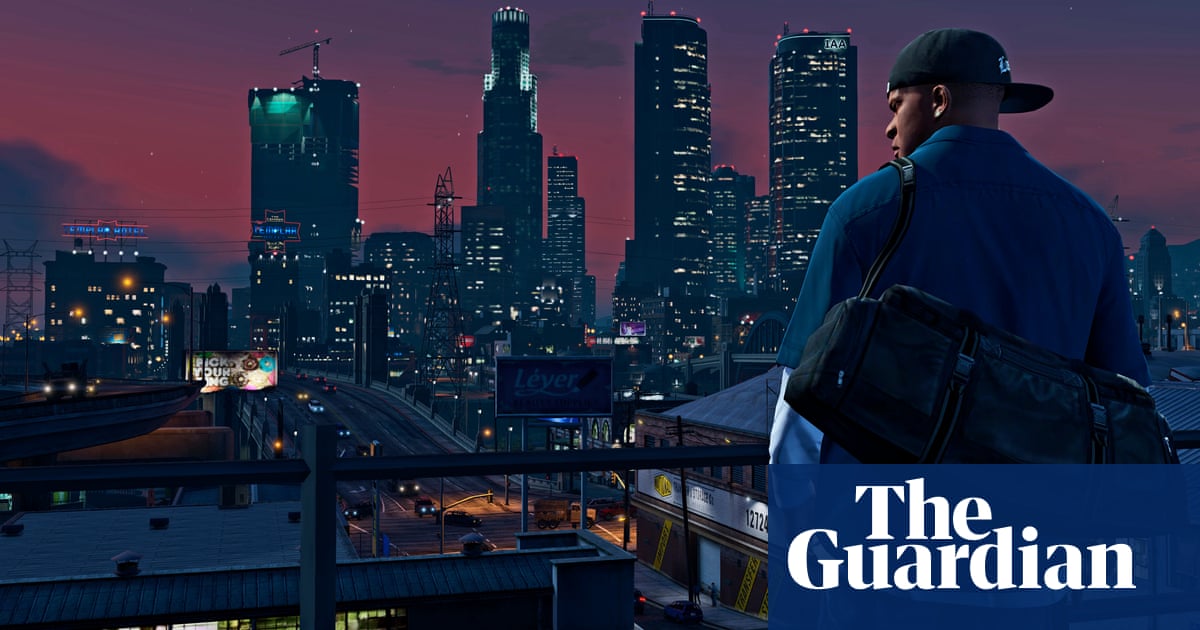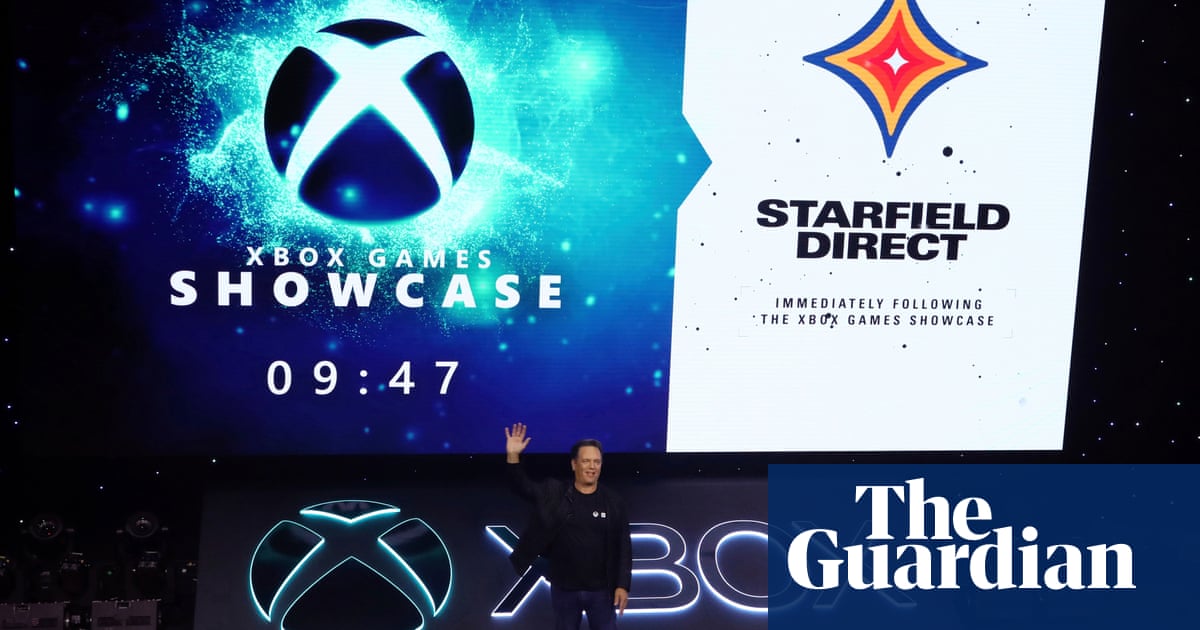
At some point last week, after watching my 100th video game trailer as part of the loosely connected series of livestreamed showcases that have replaced E3, I started to lose the will. “Wholesome” indie games featuring frogs, gritty action games, low poly PS1-era nostalgia platformers and samey mega-franchises all started to bleed into each other. Am I even capable of getting excited about video game announcements any more? Isn’t this just an endless series of adverts?
Of course, the E3 press conferences of yore were ultimately adverts, too, but they were at least adverts for video games, without commercials for delivery apps or fast food shoehorned in. And if a game was shown during a Nintendo, Xbox or PlayStation presentation, it was because they thought it might encourage people to buy their console, not because the developer paid a fee to have their trailer held up in front of monetisable eyeballs.
That’s how most of these showcases and livestreams work now: pay your money, get your slot. The organisers of Gamescom’s Opening Night Live, being German, published the rates for these appearances – they start at €85,000 for a 30-second spot. This probably works better for developers, who paid far more for actual booths at events like E3, and for the people organising the livestreams, who can coin it in. But for us? Boooooring.
But then! For a couple of hours on Sunday, Xbox showed up and finally brought a little gravitas to proceedings. It was well-curated – 27 games, rather than 40 – and encouragingly diverse, rather than US-centric. There were all-new games from the studios that Microsoft has acquired in the last few years: the RPG specialists at Obsidian are making their own fantasy RPG to fill the gap that Elder Scrolls has left in the 12 years since Skyrim; inXile’s Clockwork Revolution gave such strong Bioshock Infinite vibes that it was almost plagiarism.
Older games showed interesting developments, such as Rare’s long-running Sea of Thieves getting a Monkey Island crossover. Playground Games’ new Fable wasn’t shown at length, but a new trailer gave us the gift of giant Richard Ayoade. There was a new JRPG from some of Persona’s original creators, named, with the eccentricity typical of that series, Metaphor: ReFantazio. And naturally there were some critic-pleasing independent games: Jusant, a climbing puzzle game with echoes of Ico, and Like a Dragon: Infinite Wealth, the only trailer the whole week that made me laugh. Finally, we got more than 40 minutes of Starfield, Bethesda’s decades-in-the-making space exploration game (pictured below), which looks just superb. This is the kind of lineup that Xbox has been sorely lacking for years. And the kind that PlayStation might rightly be envious of.
Sony has had an extremely strong start to the current generation of consoles. Since the PlayStation 5 was released in 2020, it has been home to several proper five-star classics, from God of War to Ratchet and Clank to Returnal, alongside plenty of other big-budget games to make you feel good about spending so much on a space-age piece of hi-tech plastic to sit under your TV. Microsoft, meanwhile, brought out a Halo game that bore obvious scars of a troubled development, its Forza racing series, and Flight Simulator, which is nowhere near as sexy a lineup. Xbox has mostly made headlines in the past few years for throwing stunningly huge amounts of money at other games companies, rather than for any hit games.
But games take a long time to make, and Xbox was coming into this generation at a disadvantage after the Xbox One failed to compete with the PlayStation 4 on any level. Now we’re seeing the fruits of years’ worth of efforts from Xbox’s leadership and its studios to fix things, and make its subscription service – Game Pass – look irresistible. They’ve done a very good job at this, and there’s a clear vision for the creative future of games as well as their future as a business.
When I interviewed Xbox’s head of developer relations Sarah Bond recently, she made the case for diversifying the games that Xbox publishes as “an opportunity and an imperative … The full [diversity] of the world is not represented by the creators in gaming today. Therefore the stories don’t fully represent the cultures and the peoples in gaming today … Consistent and unwavering support for smaller developers is core to the health of our industry, and it’s core to ensuring that new creative things can thrive and have an audience.”
Sony has understood this for a long time. Having two of gaming’s most powerful platform-holders forging ahead with this attitude is great news for those of us who want interesting things to play in the next five years, rather than endless unimaginative live-service games that are all working from the same set of tried-and-tested profitable design principles and look almost identical.
I’ve made no secret in this newsletter of my opinion on Microsoft’s attempted Activision merger – I believe that companies attempting to buy market dominance is rarely good for a creative industry. Corporatism and creativity are natural enemies. But companies with money that don’t overstep, and that have a genuine stake in the games industry and what it means beyond financial rewards, can also help developers to make the things they dream of.
After watching that showcase on Sunday, it really doesn’t look to me that Microsoft needs Activision, at least not for Xbox (naturally mobile-game makers King and PC gaming stalwarts Blizzard, which are also under the Activision umbrella, would give Microsoft a solid foothold in different markets). It has spent a lot of money, nurtured a lot of studios and partnerships, and become a publisher with an extremely strong lineup that shows players why they should be excited about its games. This will translate to success, with or without Call of Duty on Game Pass.
As PlayStation enters its little fallow period after releasing a series of huge games in a row in the PS5’s early years, it should keep an eye on the competition.
What to play
I’ve been looking forward to Dordogne, a nostalgic, pretty-looking narrative game about spending childhood summers in France. You play as Mimi, a young adult who has a troubled relationship with her dad, a recently deceased grandmother, and an inability to remember much of her childhood. Returning to Dordogne to clear out your grandma’s house, you pick up and play around with her possessions, some of which catapult you backwards in time to your lost summers. I’m playing it in French, because I’m that guy, though it’s a shame the voice-acting is only in American English. It’s a little clunky, but I always enjoy a game with a sense of place.
Available on: PC, Nintendo Switch, PlayStation 4/5, Xbox Series/One
Estimated playtime: 4 hours
What to read
For its 40th anniversary, Capcom has made this cute little browser-based town (pictured above) full of tributes to all of its series and characters. Well worth a lunch-hour explore.
Embracer Group, which bought up Tomb Raider and look lots of investment money from the Saudi government, has announced that it has overreached, having failed to close another $2bn deal. It will now be “restructuring” the studios and projects it has spent the past couple of years buying up. My thoughts are with the devs who will be affected by this, many of whom are operating at the whim of a parent company’s parent company.
While we’re talking browser fun, try doing a Google search for “katamari” or “Splatoon” and see what happens.
Not so fast … a US judge has blocked Microsoft’s Activision Blizzard takeover until further hearings can be held. As mentioned in my letter, you’ll recall what I think about it.
There’s been a lot of news and game announcements this week, but none of it has been particularly exciting by itself. Keep an eye out at the end of the week though, as our games correspondent Keith Stuart and I will be rounding up the most interesting games from Summer Game Fest. Check the Guardian’s Games section later for our reporting.
What to click
The best games of 2023 so far
‘The more you give it, the more it’s gonna give back’: Bethesda’s Starfield explored
The Light in the Darkness review – a sobering free educational game that confronts the Holocaust
Harmony: The Fall of Reverie review – disappointingly discordant
Question Block
I need more questions for the summer, so please, send ’em in! Here’s one to inspire you from Emily: What is your best obscure video game fact?
Here’s one that always blows my mind anew whenever I’m reminded of it: the PlayStation started life as a Nintendo console. Sony and Nintendo used to work together in the 1980s and early 90s; Sony made the SNES’s sound chip, and the two companies were collaborating on a CD-Rom add-on for the Super Nintendo. In 1991, a prototype of this product was shown at the Consumer Electronics Show – and one day later, Nintendo screwed Sony over on it, breaking their contract to partner with Philips instead. Sony’s then-president Norio Ohga was sufficiently mad about this to green-light development of the SNES-CD into a rival console: the PlayStation.
As a result, Nintendo got the Philips CD-i, home to some of the worst games of all time, and Sony got a 100m-selling console that would change gaming’s future. In 2015, one of these prototype SNES-PlayStation consoles was discovered in someone’s dad’s attic; seeing that Sony PlayStation branding on a yellowing SNES controller does something very weird to my brain.




